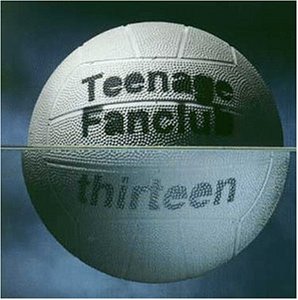
- Format: MP3

Unjustly savaged by fans and critics alike upon its initial release, with the benefit of hindsight Thirteen has revealed itself an eminently worthy follow-up to the classic Bandwagonesque; though not as consistent or refreshing as its predecessor, the album takes simultaneous steps backward and forward, retreating to a darker, sludgier guitar sound reminiscent of their debut effort A Catholic Education even as it blossoms to incorporate lilting string arrangements and glowing harmony vocals. Despite taking its title from Big Star's most gentle and optimistic moment, the record not only expands its horizons far beyond Alex Chilton-inspired pop but also maintains an emotional tenor that's largely bitter and disillusioned — titles like "Song to the Cynic," "120 Mins," and, especially, "Commercial Alternative" reflect the band's disenchantment with both its former flavor-of-the-month status and the growing creative malaise rampant throughout the alt-rock community (then at its commercial zenith). Although Gerard Love and Raymond McGinley make memorable contributions, Thirteen is first and foremost a showcase for the peerless pop genius of Norman Blake — the should-have-been hits "Norman 3" and "Ret Liv Dead" boast a crunchy, lumbering sound heavily indebted to Neil Young's records with Crazy Horse, while the soaring "Commercial Alternative" evokes vintage Byrds, a reference point further driven home by the epic closer "Gene Clark." [Original pressings of Thirteen included no fewer than six unlisted bonus cuts assembled from British singles — the material is consistently excellent, highlighted by the McGinley original "Golden Glades" as well as reverent covers of Phil Ochs' "Chords of Fame" and the Flying Burrito Brothers' "Older Guys."]